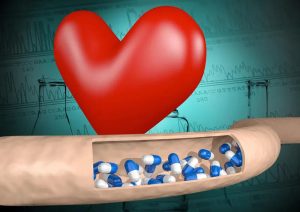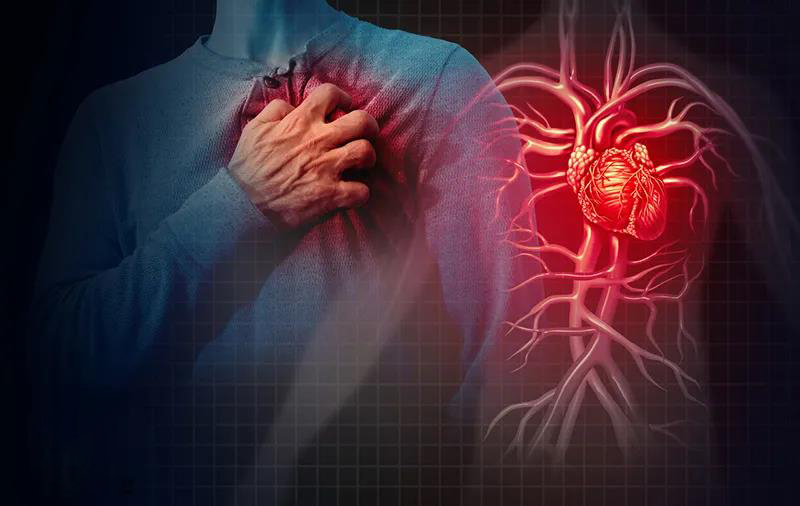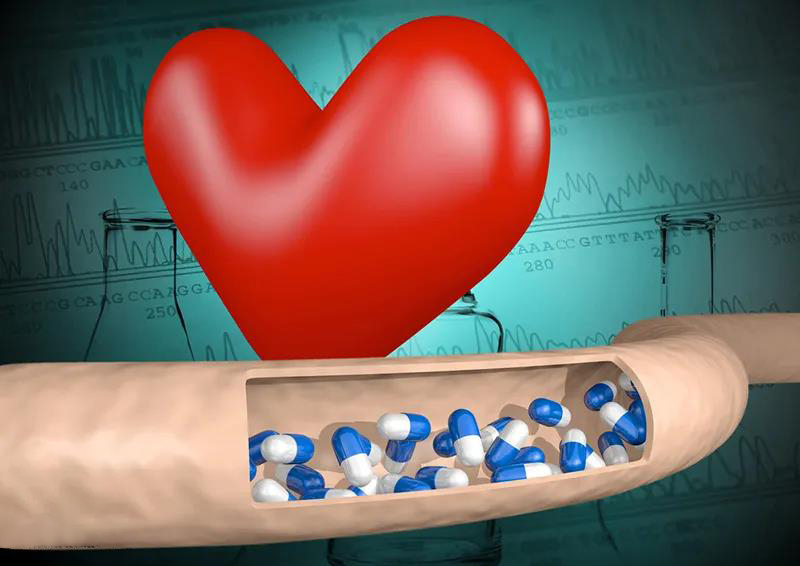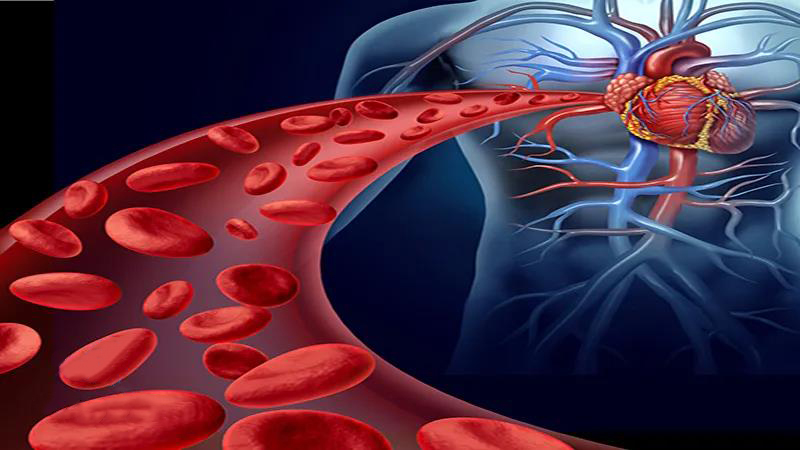
Most organs of the body get cancer.
We often hear about gastric cancer, liver cancer, lung cancer and kidney cancer. As one of the most indispensable organs to maintain life, the heart cancer has not been heard of by many people. Why? Can’t the heart grow tumor really?

1. The heart is not a “cancer free zone”
Although cardiac tumors are rare, they still exist. The heart contains not only muscles, but also a large part of blood vessels, which may grow malignant tumors.
There are two main types of cardiac tumors: one is primary cardiac tumor; The other is the secondary tumor that other organs spread to the heart.
Primary cardiac tumor
Research investigations have shown that the incidence of primary cardiac tumors can be as low as 0.0017%.
In other words, one or two of every 100000 people are likely to have a heart tumor, which is very rare.

Of these people, about 75% of them are benign, and only 25% of malignant tumors are malignant. The most common are the following three:
① Cardiac myxoma: benign
The incidence is about half of all heart tumors, and most of them are benign. It usually occurs in the atria, but it can move between heart chambers and may damage surrounding tissues.
If the disease is severe and surgery is not performed in time, it will spread to the entire heart cavity and block blood flow, causing strokes, blood clots and even myocardial infarction.
However, myxoma is easily treated with surgery and the prognosis is very good.
② Angiosarcoma and rhabdomyosarcoma: malignant
These two kinds of tumors are highly malignant and progress rapidly. 66% to 89% of patients have metastases to the lung, liver, bone and lymph nodes when they visit.
If removed quickly without surgery, 90% of patients will die within 9-12 months after diagnosis.
Secondary cardiac tumors
Secondary cardiac tumors are the result of the metastasis of malignant tumors in other nearby organs.
Cancer cells such as melanoma, lung cancer, kidney cancer, choriocarcinoma, and breast cancer may transfer to the heart with the blood. Among them, melanoma is the most common, accounting for about 50-70% of heart metastases.
Note: When cancer metastasizes to the heart, the prognosis of the patient is usually poor, and the survival rate is often low.
There is a tumor in the heart, and the symptoms are not obvious
①Dyspnea, palpitations, shortness of breath, and regional pain around the heart.
② Fatigue, chest tightness, and a series of non-specific symptoms such as nausea, fever, weight loss, and night sweats.
These symptoms are similar to those caused by other heart diseases, and therefore, make effective diagnosis of heart tumors difficult.
But I still want to remind everyone that once there is heart discomfort, it is best to go to the hospital for a cardiac color Doppler ultrasound, supplemented by CT or magnetic resonance imaging scanning technology.
2. Why is the heart cancer rate so low?
Cardiomyocytes rarely proliferate and divide
In terms of the pathogenesis of cancer, malignant tumors are the result of “genetic errors” in the genetic material DNA, including errors in DNA replication and transcription.
In other words, cancer usually occurs in cells that are actively metabolizing and dividing.
The most important thing in the heart is the cardiomyocytes, which are “terminally differentiated cells.” That is, from birth to death, there is little proliferation and division, so the genes it contains basically have no chance of mutation and error, which ensures that the heart rarely suffers from cancer.
There are no epithelial cells in the heart
Gene mutations particularly favor epithelial tissues, so all organs containing epithelial tissues are at risk of cancer, such as liver, kidney, digestive tract, respiratory tract, breast, prostate, etc.
Organs without epithelial tissue tend to have a low chance of developing tumors, and the heart just has no epithelial tissue.
Related to heart function
The heart needs to beat day and night.
The metastasis of cancer cells needs to be “set up” somewhere in the body, but the blood flow in the heart is too fast, and most cancer cells are taken away by the blood without a chance to “root”.

The heart and blood vessels form a closed blood circulation system
The heart and blood vessels constitute a unique closed circulatory system, which is not easily interfered by the invasion of harmful foreign substances, especially carcinogens.
In addition, the heart is hidden deep in the core of the body, and harmful substances entering the blood will pass through the liver, spleen, and kidneys to be continuously purified, reducing the damage to the heart.
3. The heart is most “feared” of these things
The rate of heart cancer is low, but the risk of heart disease is high. At present, cardiovascular disease has surpassed cancer as the “top killer.”
And here is what the heart fears the most:
1. The heart is afraid you’ll get fat
Obesity, on the one hand, will increase the burden of the heart, increase the risk of thrombosis, atherosclerosis, and then lead to coronary heart disease, myocardial infarction, etc; On the other hand, fat can invade the heart and destroy the heart tissue and function.
The results shows that weight gain of 10%, the risk of coronary heart disease increases by 38%; weight gain 20%, coronary heart disease risk increases by 86%!
Therefore, it is better to control the body mass index (BMI) between 18.5 and 24.9.

2. The heart is afraid of being tired
There are not a few examples of death from overwork in life. Exhaust, will hurt the heart, prone to myocardial infarction, more likely to cause heart failure.
When people are overworked, the body will secrete a lot of adrenaline and northyroxine, which can cause vasospasm, increase blood pressure, reduce the local blood supply of the heart, and easily induce cardiovascular disease.
Therefore, whether it is work or study, we must pay attention to the combination of work and rest, ensure adequate sleep, less stay up late.
The heart is afraid of being too excited
When being excited, it will change the secretion of adrenal hormone in human body, which will lead to heart beating too fast and increase the burden of heart.
If the patient itself is associated with hypertension, atherosclerosis and other diseases, emotional excitement is more likely to lead to vascular rupture, cerebral hemorrhage or even sudden death.
Therefore, we should manage our emotions and keep a peaceful attitude.

The heart is afraid of too salty food
The main component of salt is sodium chloride. If the sodium intake is too much, it will cause the retention of water and sodium in the body, increase the pressure in the blood vessels, increase the resistance, and increase the burden on the heart.
The study found that people who ate more than 13.7G of salt a day were twice as likely to suffer from heart failure as those who ate less than 6.8g of salt a day.
Therefore, the daily salt intake is not more than 6G (about the amount of a water bottle cap).
Comments